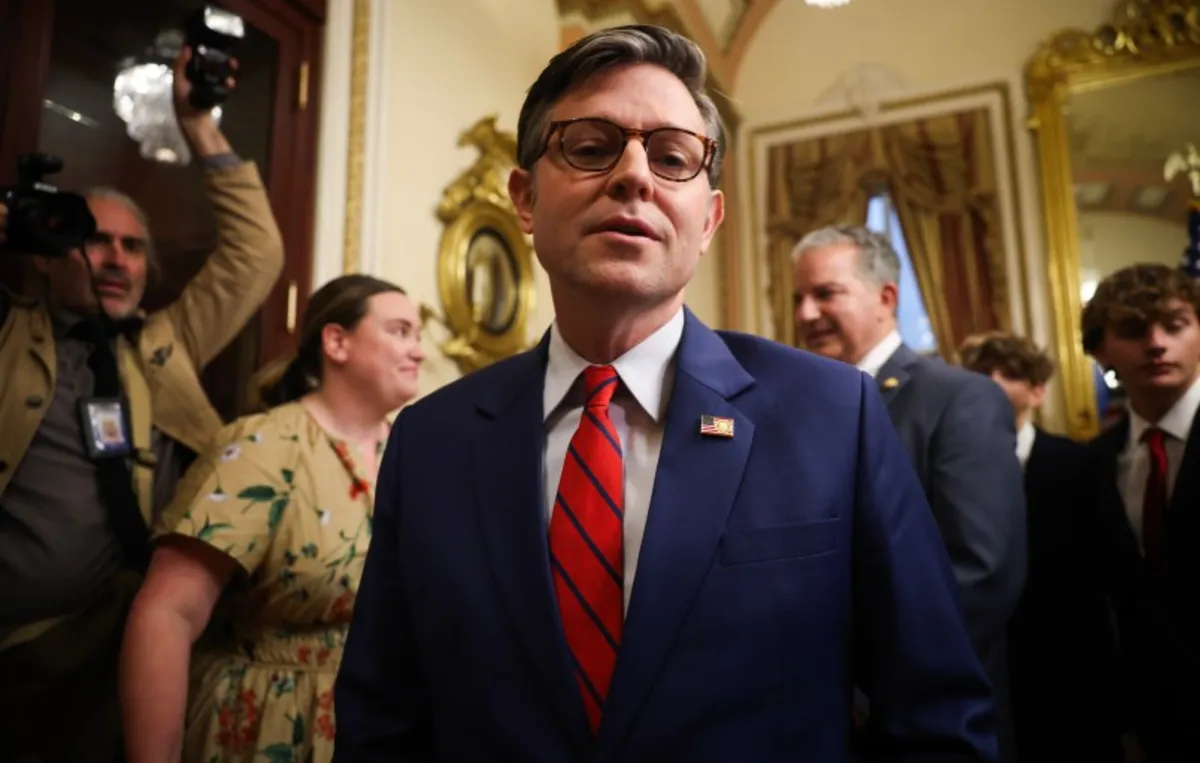
In a significant political stance, House Speaker Mike Johnson (R-LA) expressed strong opposition to even considering a Senate bill that aims to restrict the President's ability to unilaterally impose tariffs. This bipartisan legislation, introduced by Senators Maria Cantwell (D-WA) and Chuck Grassley (R-IA), has already garnered support from seven Republican senators, who are advocating for Congress to reclaim its authority over tariff policy.
The proposed legislation has emerged as a platform for Republicans to voice their concerns regarding President Trump's tariffs, which have reportedly caused a decline in the stock market even before new tariffs take effect on Wednesday. Representative Dan Bacon (R-NE) announced plans to introduce similar legislation in the House, emphasizing the need for Congress to assert its sole authority over tariff policies—a power he believes should not have been ceded to the President.
There is some ambiguity regarding Bacon's reference to the longstanding policy that enables presidents to declare emergencies and respond with tariffs. It is also noteworthy that House Republican leadership previously included language in a procedural vote aimed at preventing a vote on legislation that would end tariffs on Canada, Mexico, and China this year. This move was perceived as a strategy to avoid a politically contentious vote among House Republicans.
Reports indicate that the Trump administration has communicated its intention to veto the Senate bill should it pass through both chambers. According to an administration policy statement, the bill would "dangerously hamper the President's authority and duty to determine our foreign policy and protect our national security." Johnson reiterated his position today, stating that he has no intention of bringing Bacon’s bill or the Senate version to the House floor for a vote, advocating instead for Congress to provide Trump with the necessary "space" to address trade deficits.
Johnson emphasized the importance of allowing the President the "latitude" needed to fulfill his elected responsibilities. "We’re going to give him the space necessary to do it, and we’ll see how it all develops," he stated, highlighting the ongoing complexities surrounding tariff policies and trade negotiations.
In related news, Christopher-James DeLorenz, a former law clerk for Judge Aileen Cannon, has taken on a significant role within the Justice Department under Todd Blanche, Trump’s former defense lawyer. DeLorenz's appointment comes in the wake of Cannon's oversight of the classified documents case against President Trump, raising questions about the influence of the Trump administration over personnel decisions within the Department of Justice.
Chief Justice John Roberts has issued an administrative stay on a ruling by US District Judge Paula Xinis, which mandated the Trump administration to facilitate the return of Kilmar Abrego Garcia, a Maryland man wrongfully deported to a dangerous prison in El Salvador. The stay is pending further orders from Roberts or the court, following a unanimous decision by a federal appeals court panel to maintain Xinis' deadline for the government's action.
In a surprising admission, RFK Jr., former Secretary of Health and Human Services under Trump, acknowledged that vaccination is the most effective method to prevent the spread of measles in the U.S. His statement, made on Twitter after meeting the family of a child who died in Texas, has prompted backlash among his anti-vaccine supporters.
As political and legal developments continue to unfold, the implications of these discussions and decisions will undoubtedly shape the landscape of U.S. governance and public health policy.